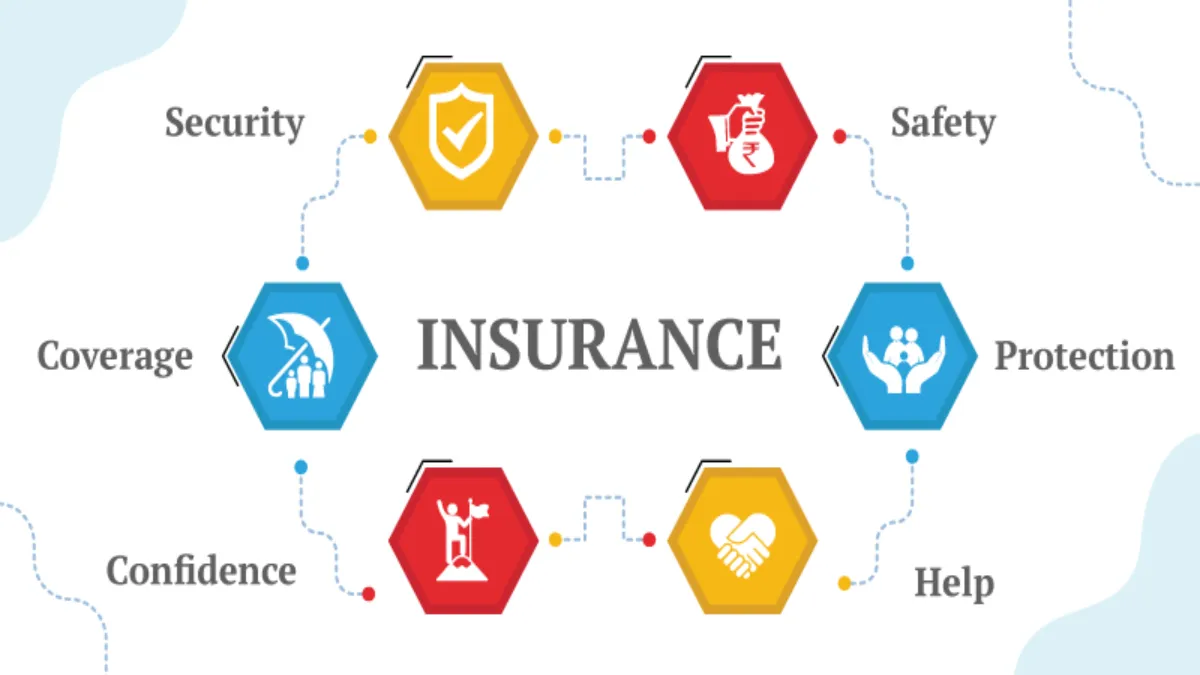An individual’s life and possessions are threatened by the risk of death, incapacity, or destruction. These dangers can lead to financial losses. Transferring these risks to a third party is a sensible option that involves insurance.
What is Insurance?
The parties to the contract known as insurance are the insurance company (the insurer) and the individual (the insured). In doing so, the insurance company promises to pay for the insured’s damages if the insured situation occurs. The event that causes losses is the contingency. It can be the policyholder’s demise or damage to or destruction of the property. It is referred to as a contingency since there is a possibility that the event won’t take place. The insured pays a premium in return for the insurer’s assurance.
How does insurance work?
An insurance contract known as an insurance policy is created between the insurer and the insured. The terms and circumstances under which the insurance company will pay the insurance sum to either the insured person or the nominees are specified in the insurance policy. A way to defend your family and yourself against financial loss is through insurance. A large insurance policy typically has a substantially lower premium in terms of money paid. Due to the low number of insured individuals who really utilize their insurance, the insurance company is willing to assume the risk of offering a high level of protection for a low price. For this reason, you can purchase insurance for a significant sum at a modest cost. An insurance firm will give insurance if it chooses to, but anyone or any organization may request insurance from them. To reach a decision, the insurance company will consider the claim application. Typically, high-risk applicants are turned down by insurance firms.
Types Of Insurance
Life insurance
Life insurance is, as the name implies, insurance on your own mortality. You get life insurance to ensure that your dependents would be supported financially in the case of your untimely passing. If you are the only provider for your family or if they depend substantially on your income, life insurance is very crucial. In the event that the policyholder passes away within the policy’s term, the policyholder’s family is financially supported by life insurance.
Health insurance
To pay for pricey therapies’ medical expenses, people get health insurance. A variety of diseases and afflictions are covered by various health insurance policies. Both generic and disease-specific health insurance plans are available for purchase. Costs associated with care, hospitalization, and medication are often covered by the premium paid for a health insurance coverage.
Car insurance
A car insurance policy is crucial for every automobile owner in the modern world. You are protected by this insurance from any unfortunate occurrences, such as accidents. Some insurance also cover damages to your car caused by tragedies caused by nature, such as earthquakes or floods. It also includes third-party responsibility, which requires you to compensate other car owners for damages.
Education Insurance
The kid education insurance is comparable to a life insurance policy that has been created specifically as a tool for conserving money. When your child reaches the legal age for higher education and is accepted into college (18 years or older), an education insurance might be a terrific method to provide a lump sum of money. The costs of your child’s further education can thereafter be covered by this fund. The child is the life assured or the beneficiary under this insurance, while the parent or legal guardian is the policy’s owner. Using the education planning calculator, you may determine an approximate amount of money that will be spent on paying your children’s higher education.
Home insurance
Owning a home is something that we all desire. The loss or damage to your home brought on by mishaps like fires and other natural calamities or risks might be helped by home insurance. Other occurrences like lightning, earthquakes, etc. are covered by home insurance.
What are the tax benefits on insurance?
You can receive income tax benefits in addition to benefits for safety and security when you purchase insurance.
Under Section 80C, life insurance premiums up to Rs. 1.5 lakh may be deducted tax-free.
Under Section 80D, you and your family and your parents can claim a tax-saving deduction for up to 25,000 in medical insurance premiums.
These assertions must be made when electronically filing income tax returns.
Conclusion
You can purchase an insurance coverage offline as well as online, whether it be for life insurance, health insurance, or general insurance. There are websites where you can purchase a policy, just like there are insurance brokers who can assist you in doing so. Make careful to conduct thorough research before deciding on and purchasing an insurance coverage.






